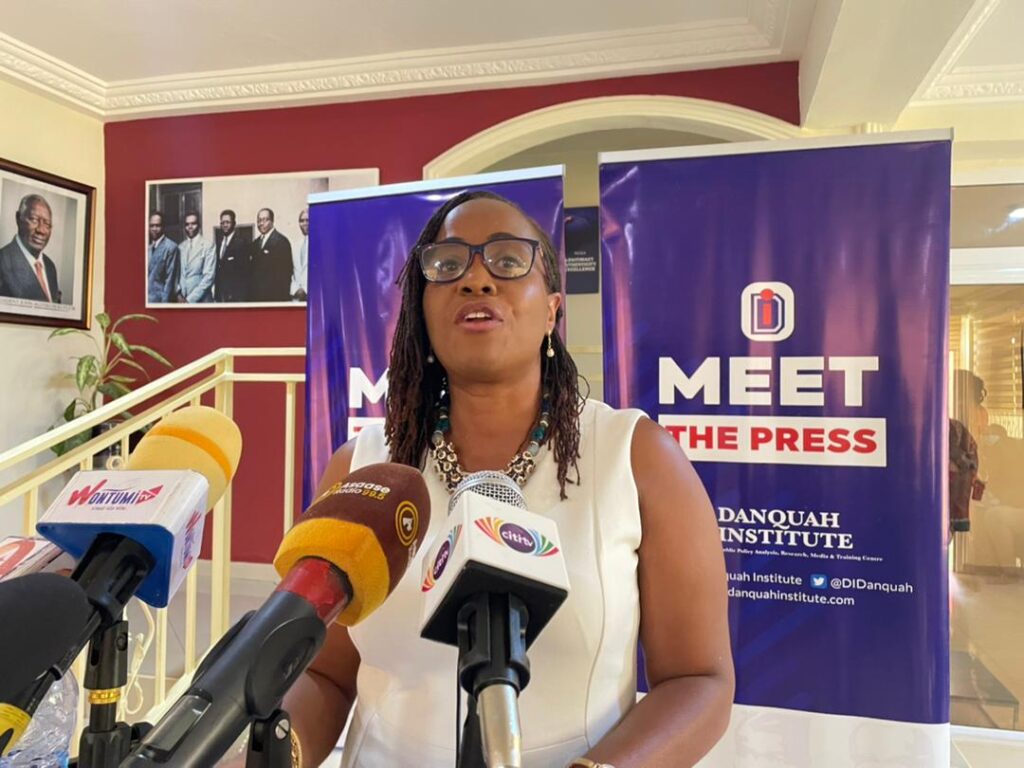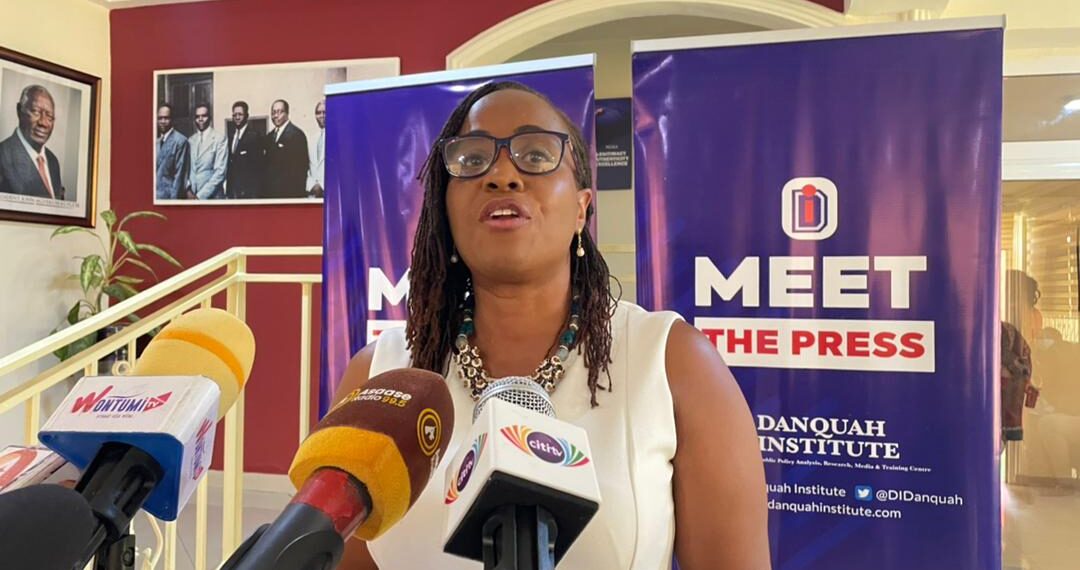Policy Think Tank, Danquah Institute (DI), has alluded the ruling New Patriotic Party (NPP) has brought the country’s economy on track.
According to the DI despite the toll the COVID-19 pandemic had on the country’s economy, the Akuffo Addo administration has been able to strategically bring to life Ghana’s economy.
Addressing the press, the Executive Director of D.I, Dr. Antoinette Tsiboe-Darko said, “Nana Akufo-Addo’s Government was immediately called to action and it responded promptly by registering a positive primary balance for the first time in 15 years at the end of 2017 fiscal year! A positive primary balance was recorded again, in 2018 and in 2019 to suggest the Government’s excellent performance in debt management. By dint of hard work, the Ghanaian economy was growing at 6.5% at the end of 2019 – which was quite impressive. Debt-to-GDP ratio which was 57.6% (2013 constant prices), however, increased to 62.8% at the end of 2019 fiscal year.”
According to Dr. Tsiboe-Darko, the unforeseen COVID-19 pandemic disrupted the otherwise prudent fiscal management exhibited by the government, which led to a 0.4% economic growth decline in 2020, “the lowest since 1983”.
She further indicated, “The Government, however, immediately put together a number of programs and projects to help the economy recover immediately from the heavy fall. By the end of 2020, the debt-to-GDP ratio was at 76.1%. The fiscal deficit had increased to 11.7% without the financial sector and energy sector-related expenditures.
Danquah Institute is happy to note that the recovery strategies implemented by the NPP government in the wake of the COVID-19 pandemic have yielded dividends. The economy grew at 3.1% and 3.9% respectively during the first two quarters of this year. On average, therefore, the economy grew at 3.5% during the first half of the year – which is higher than the 2016 growth rate! Therefore, even though the adverse effects of the COVID-19 pandemic still remain, the Ghanaian economy is growing faster than it was when the current NPP Government took over power in January 2017.”





















